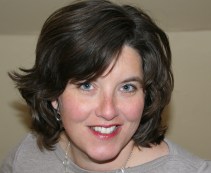- Our School
- Our Advantage
- Admission
- Elementary•Middle School
- High School
- Summer
- Giving
- Parent Resources
- For Educators
- Alumni
« Back
Disability Discrimination
March 2nd, 2015
By Angela M. Timpone
Last fall, while I watched the Norwich University football team win 19–9 against Gallaudet University, I overheard words like “dumb,” “stupid,” and “retard” from NU spectators. These words weren't comments on the Gallaudet players’ performance. The derogatory remarks referred to the players’ disabilities; Gallaudet students are deaf or hard of hearing. Disability discrimination is often more socially acceptable than high-profile race discrimination. We chuckle or look away when remarks fly about a person’s disability.
As a parent with two children with disabilities, I struggle knowing their journey will be plagued with discrimination. By early elementary school both Dylan and Tristan were labeled by peers as “stupid” and/or “dumb.” Tristan and Dylan learn and think differently compared to typically developing children.
Disability discrimination isn't limited to children on the playground. In 2013, I left a high-profile lobbying career in Vermont for Dylan to attend Landmark School. Shortly after moving to Beverly, I wrote an open letter to Vermont Governor Shumlin (who also has dyslexia) and key legislators urging them to consider ways of educating students with dyslexia. In Vermont, there are little options to educate students with dyslexia— no language-based classrooms, no trained teachers and no similar peers in our small school districts. I thought I had sympathetic readers.
In my letter I mentioned that Dylan has a superior I.Q., but he hardly knew the alphabet and that our highly regarded schools had failed him. My letter sparked responses ranging from sympathy to outrage. Some suggested, I reduce my expectations for Dylan. No way— without basic reading and writing skills all doors for Dylan’s future were closed.
My mommy magic-wand can’t eliminate discrimination. I have no good solutions. What I do know is that I am part of the problem. I shy away from talking about disability discrimination. I want to fit-in and I especially want my children to fit-in to society. I worry my avoidance to disability discrimination adds to the problem. Perhaps we need to follow the examples of race discrimination and have public conversations about disability discrimination? Better yet, maybe we can change the conversation— let’s instead talk people’s strengths and abilities versus looking at people’s deficits.

Angela Timpone is a certified educational advocate serving Vermont and Massachusetts and founder of Camp Kaleidoscope, a camp for families with children with autism.
Posted in the category Learning Disabilities.



















